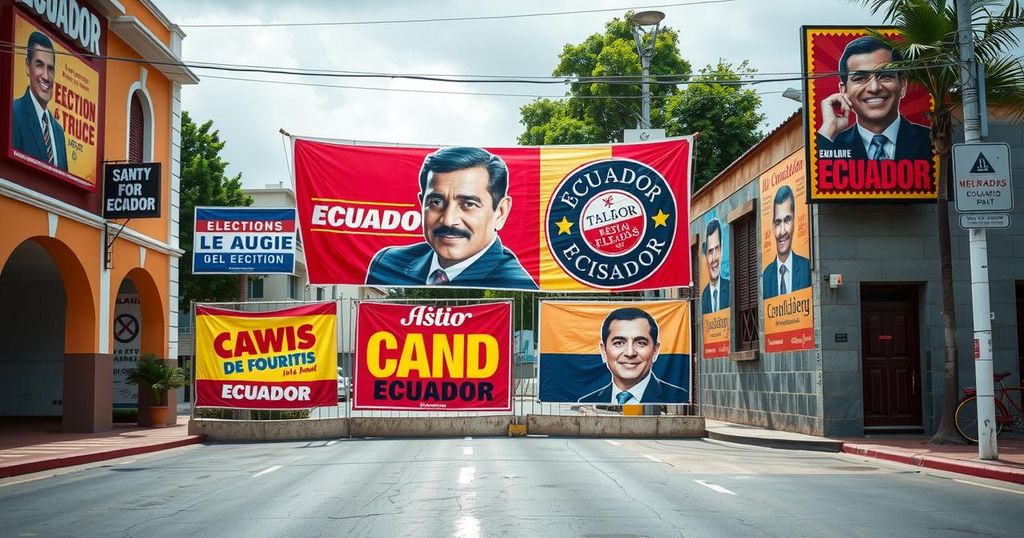Ecuadorian Presidential Candidates Make Final Appeals to Voters Ahead of Tight Election

Ecuador’s presidential election features incumbent President Daniel Noboa and challenger Luisa Gonzalez, emphasizing jobs, crime, and women’s issues. As the election nears, both candidates seek to sway voters amidst escalating violence and economic concerns, while a close outcome could lead to governance challenges.
In the run-up to Ecuador’s imminent presidential election, incumbent President Daniel Noboa and his leftist rival Luisa Gonzalez made their final appeal to voters, emphasizing key issues such as employment, crime, and women’s empowerment. The election features a competitive atmosphere, with Noboa at 37 years old against Gonzalez, who seeks to be Ecuador’s first female president at 47.
As the campaigns concluded, a period of silence was mandated, including a ban on alcohol, while the government restricted foreign access to prevent potential unrest. With nearly 14 million Ecuadorans eligible to vote, they face a significant decision regarding the leadership of their nation, which struggles with violence and economic challenges.
Ecuador’s alarming homicide rate reached unprecedented levels in early 2023, with Noboa advocating for a robust approach to combat the drug trade by inviting US military assistance to confront drug cartels operating out of neighboring Colombia and Peru. In contrast, Gonzalez signals a leftward shift in policy and seeks to redefine relations with the United States, aligning herself with former President Rafael Correa, a contentious figure who remains a dividing force among the electorate.
Both candidates conclude their campaigns in Guayaquil, which is at the heart of the country’s drug trade crisis. Gonzalez has specifically targeted women voters, proposing financial aid for single mothers to alleviate their economic hardships. Meanwhile, Noboa presents himself as a progressive outsider opposed to entrenched political elites, criticizing his opponent’s affiliations with past administrations.
Analysts express concerns regarding possible post-election disputes, noting that a narrow victory could lead to allegations of fraud and indicate a government lacking a strong mandate. Simon Pachano of FLASCO highlights these concerns, suggesting that a close electoral outcome might impede effective governance due to a divided populace.
The Ecuadorian presidential election showcases a contentious battle between incumbent President Daniel Noboa and challenger Luisa Gonzalez, with key focus areas including employment, crime, and women’s rights. Amidst rising violence linked to drug trafficking, the outcome of this election could significantly alter Ecuador’s political landscape. With the electorate divided and potential claims of electoral fraud, the transition of power may face challenges regardless of the victor.
Original Source: www.rfi.fr







